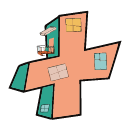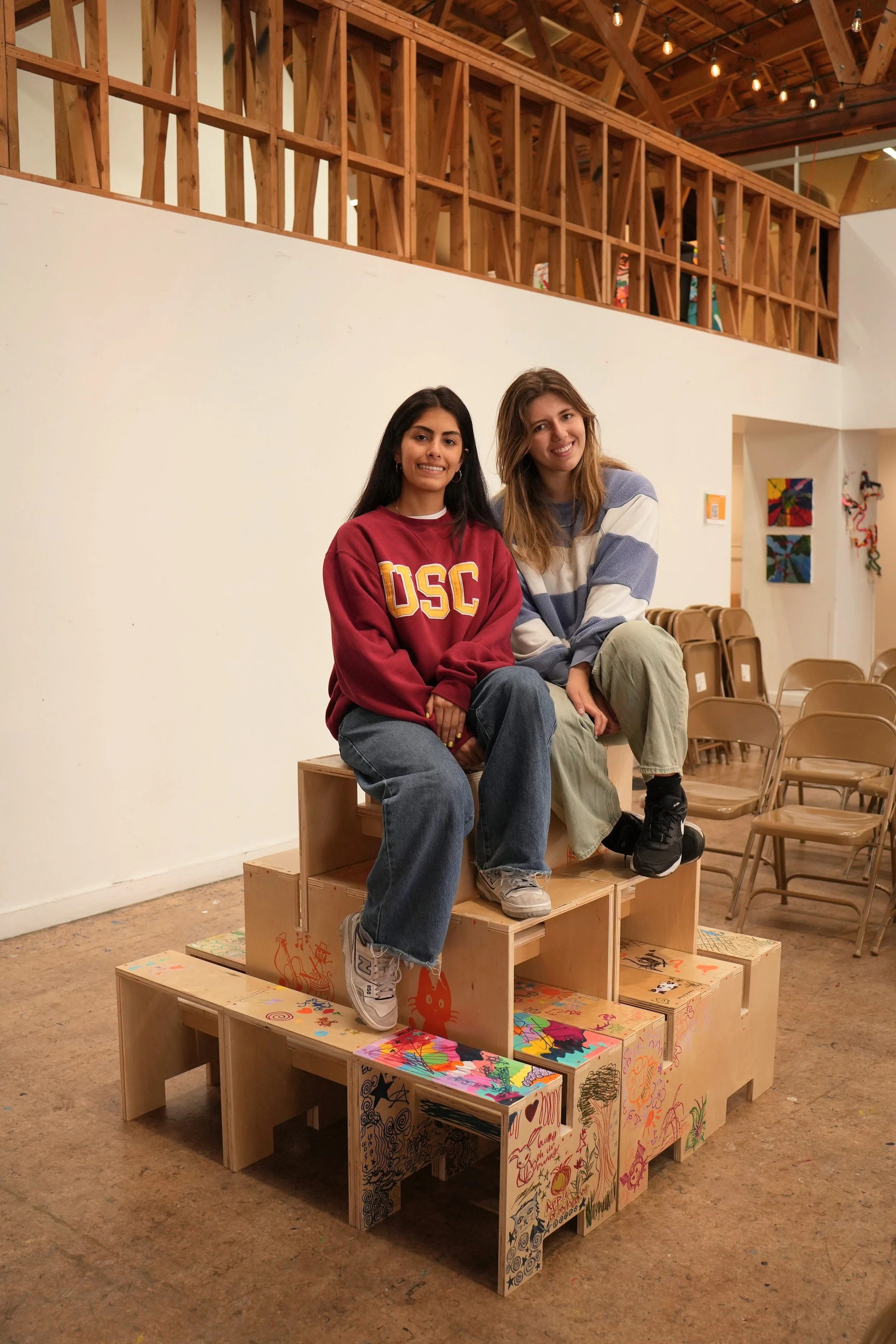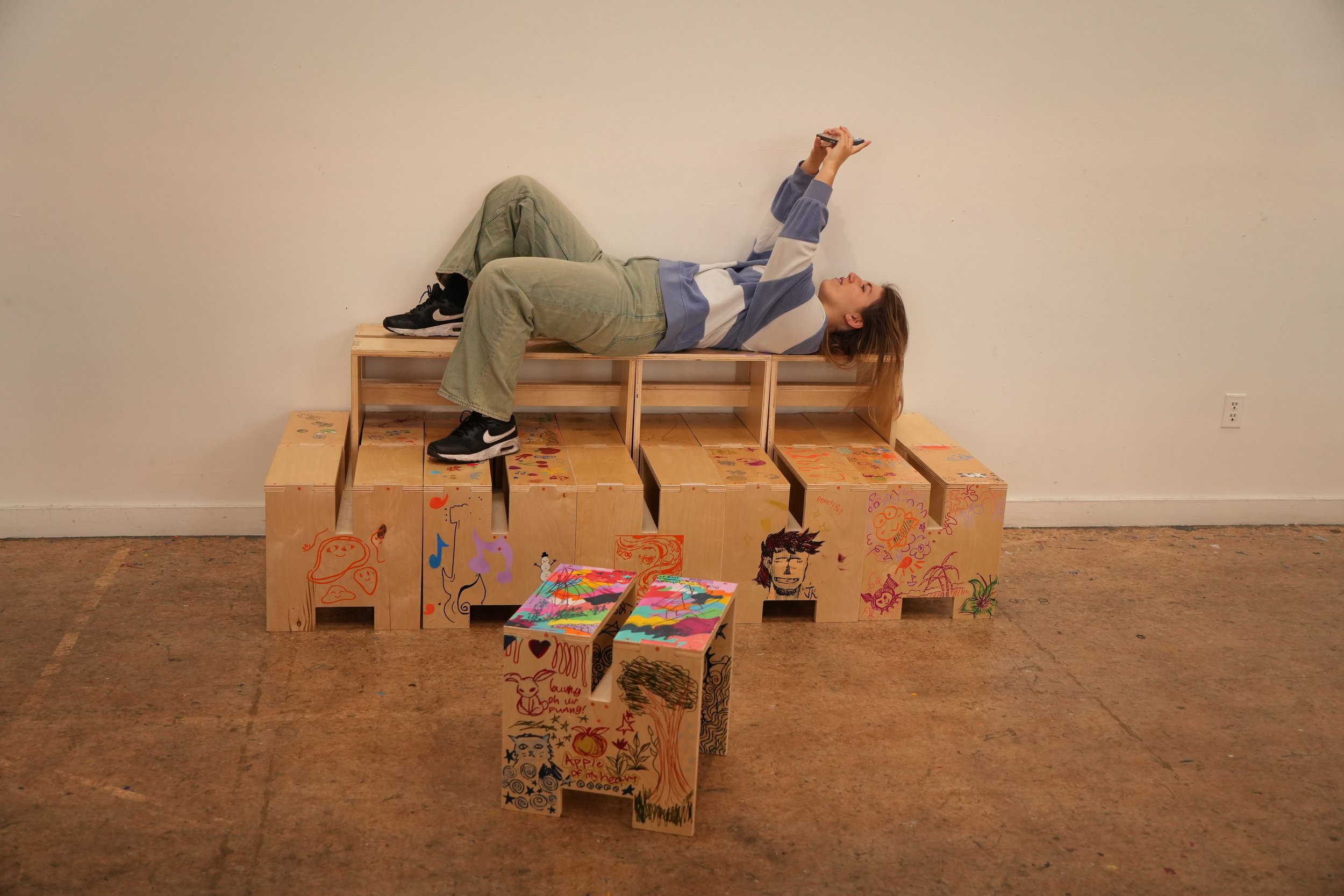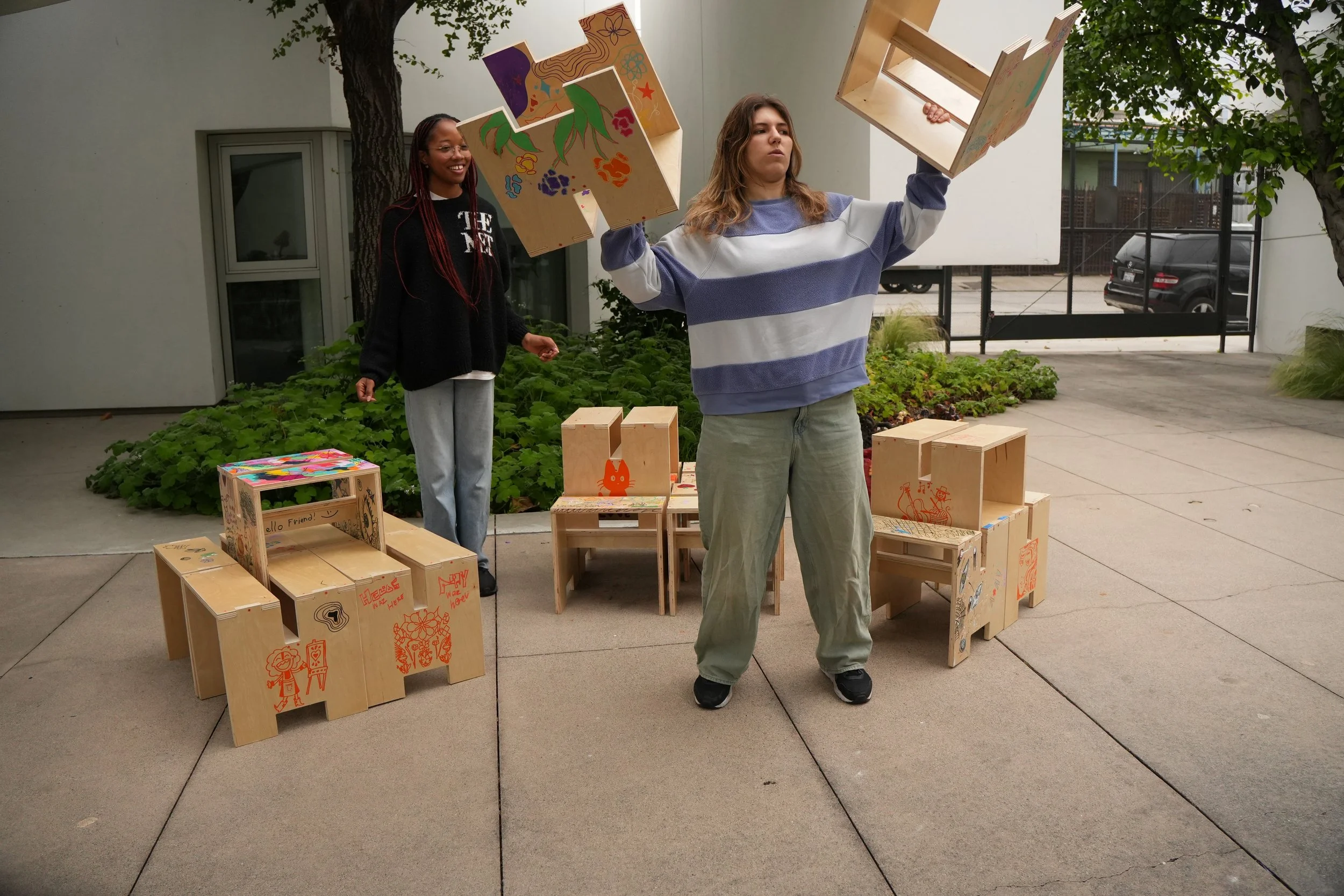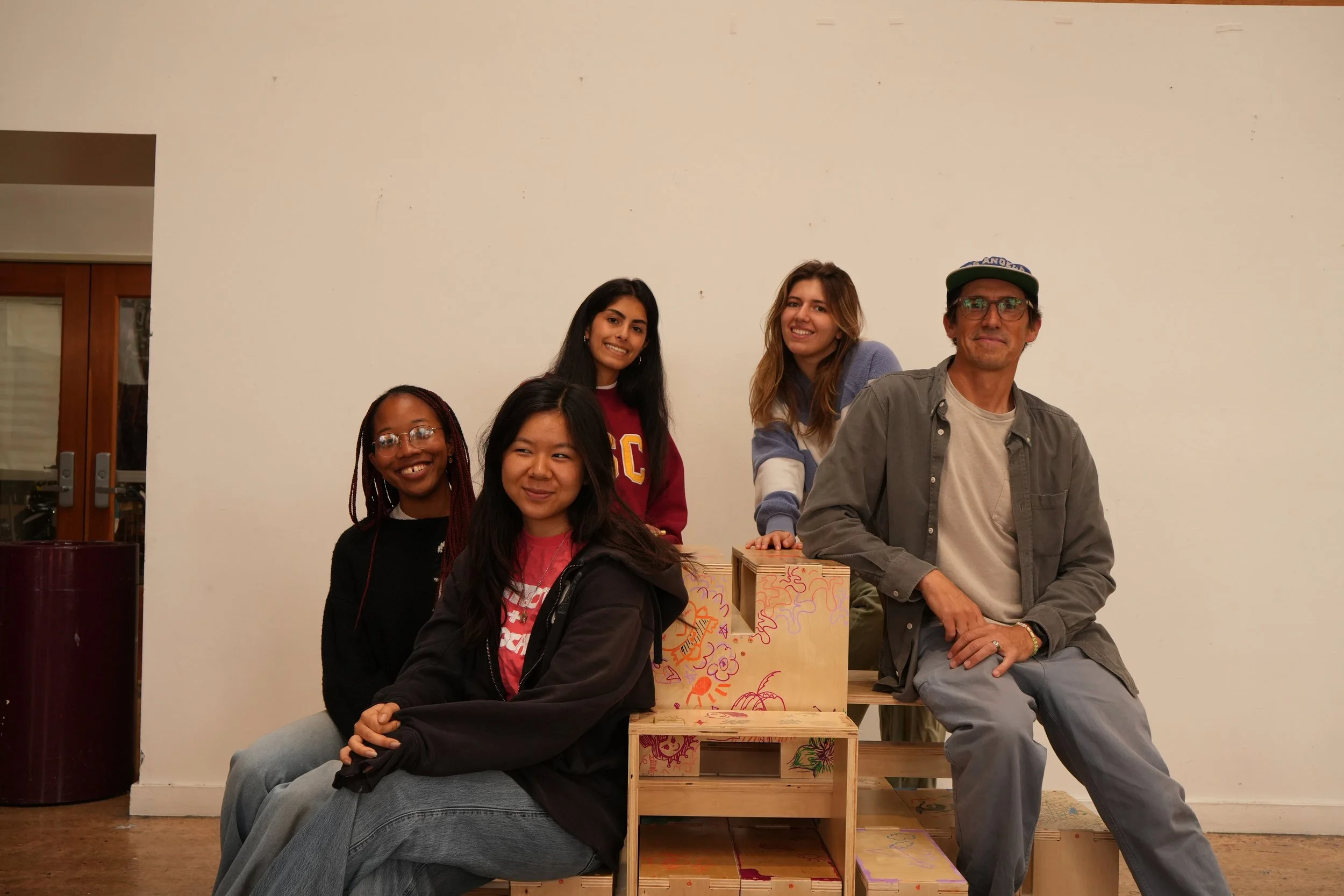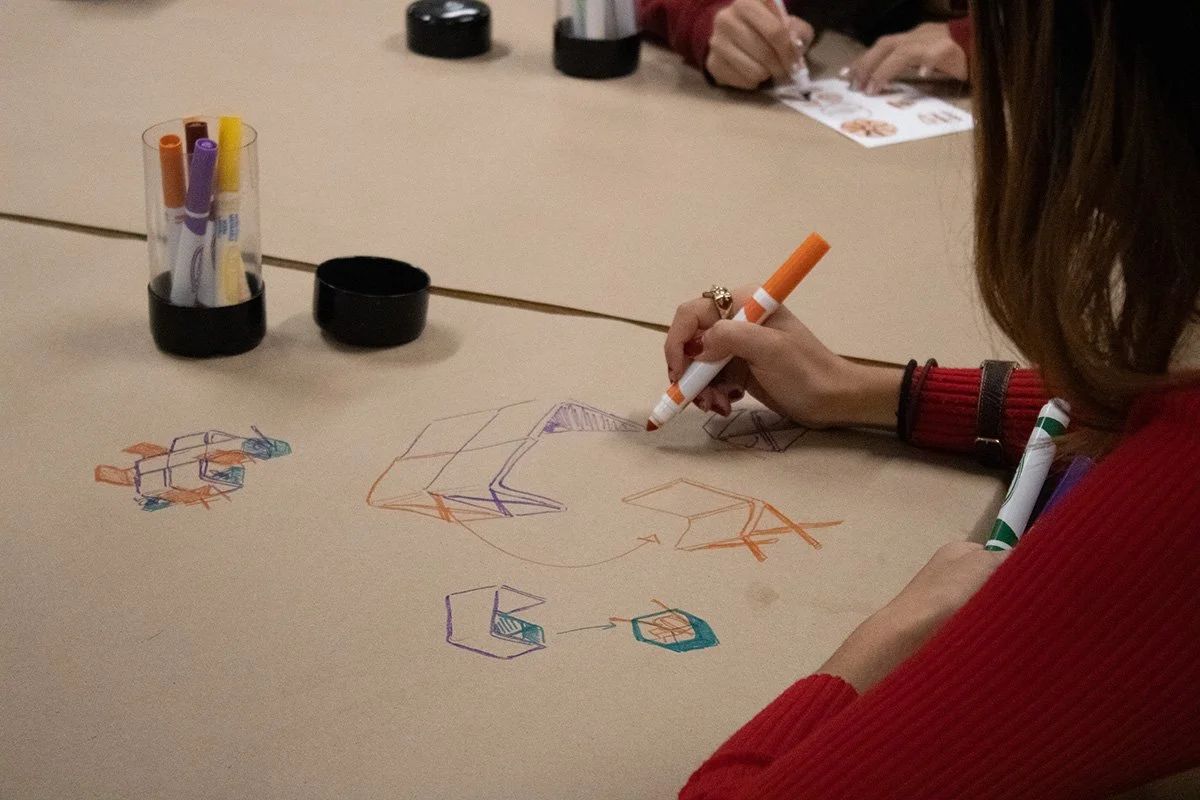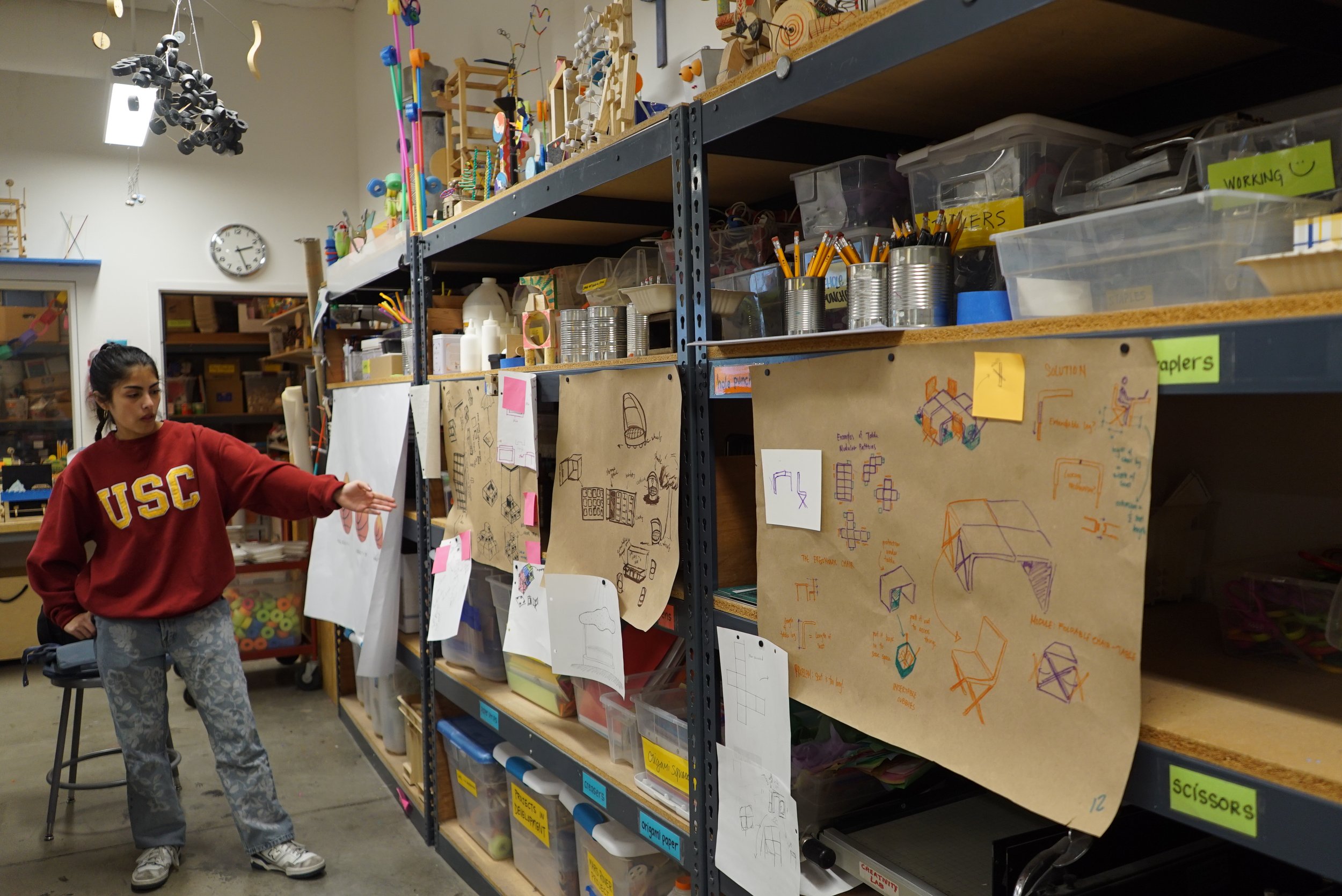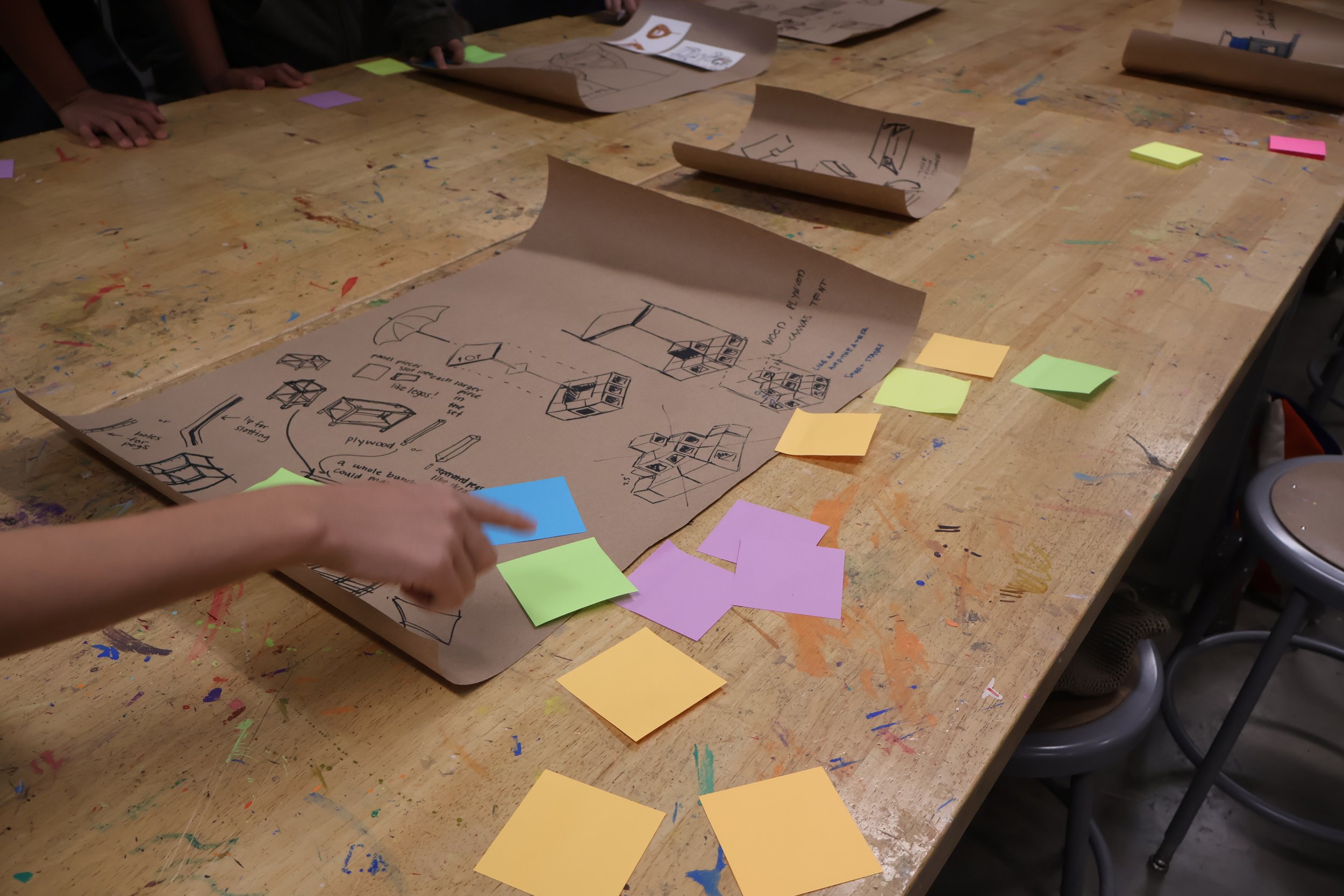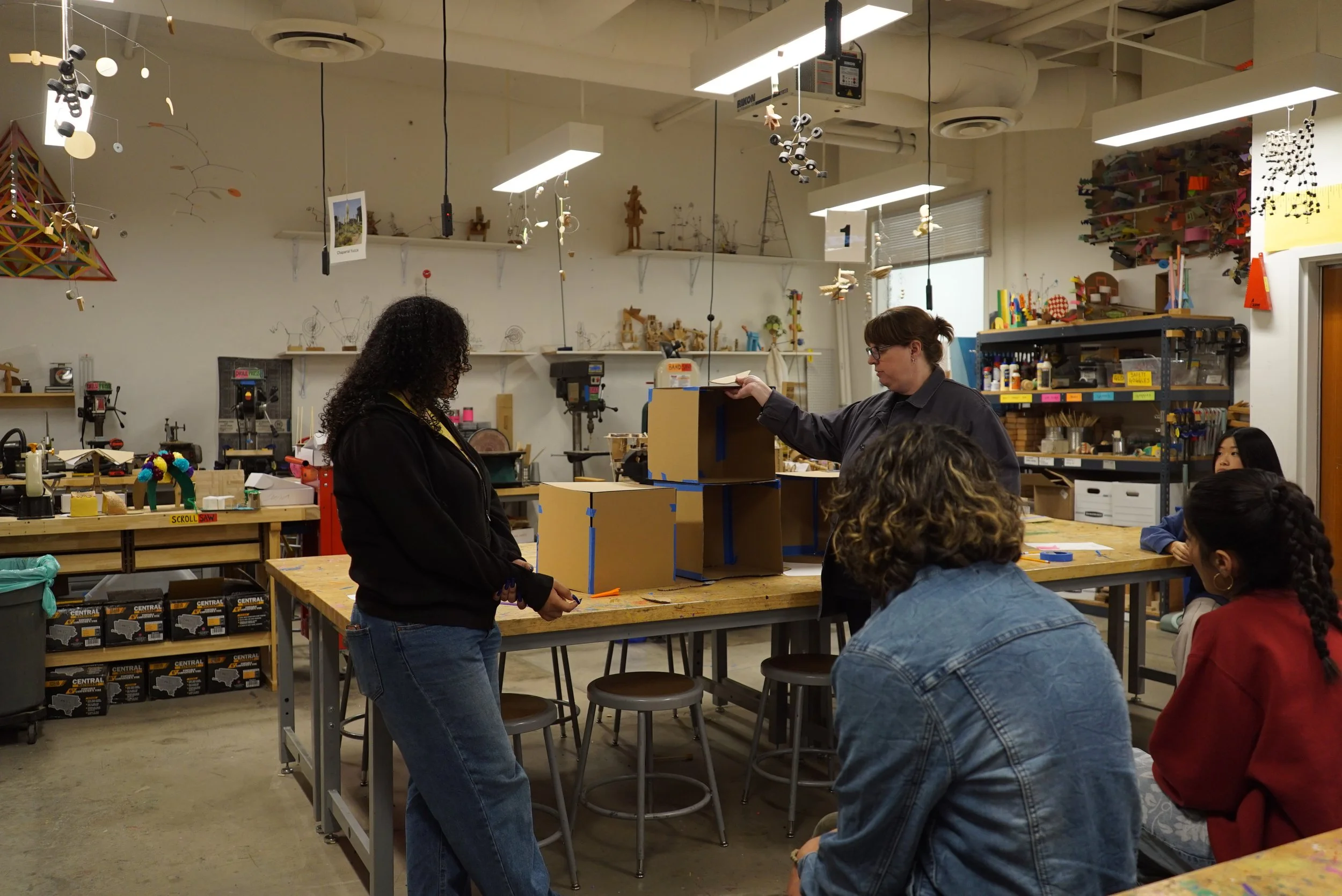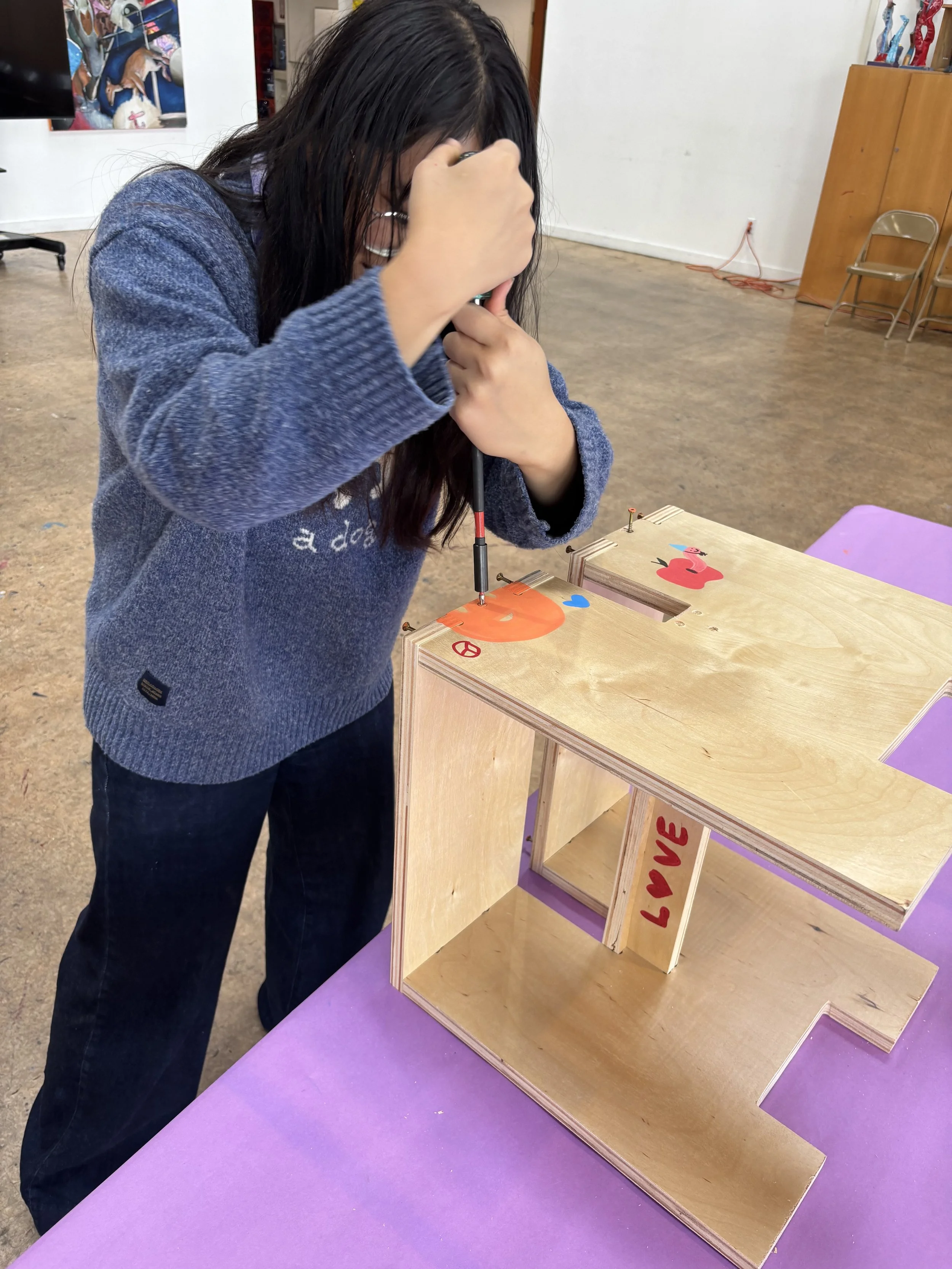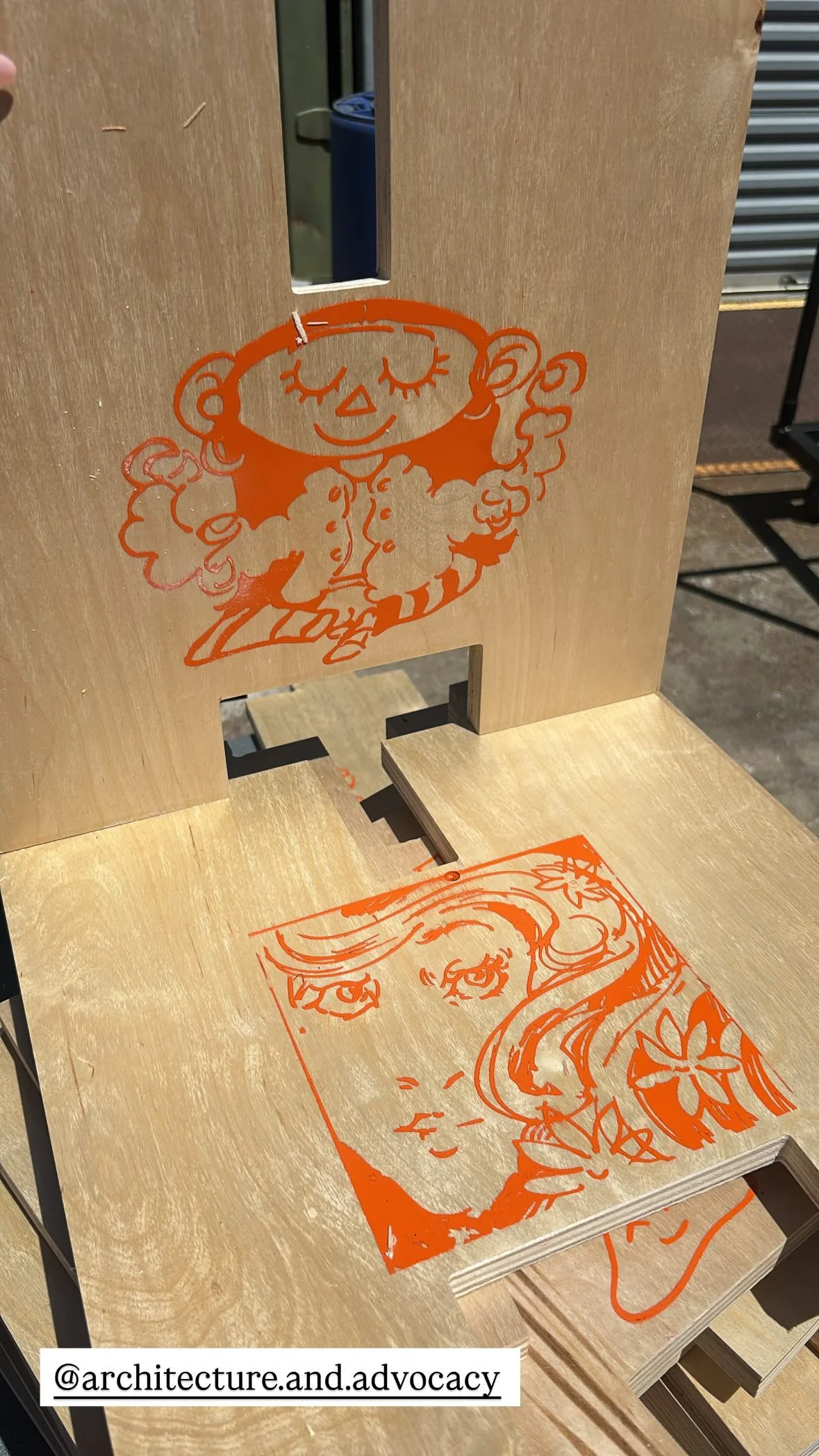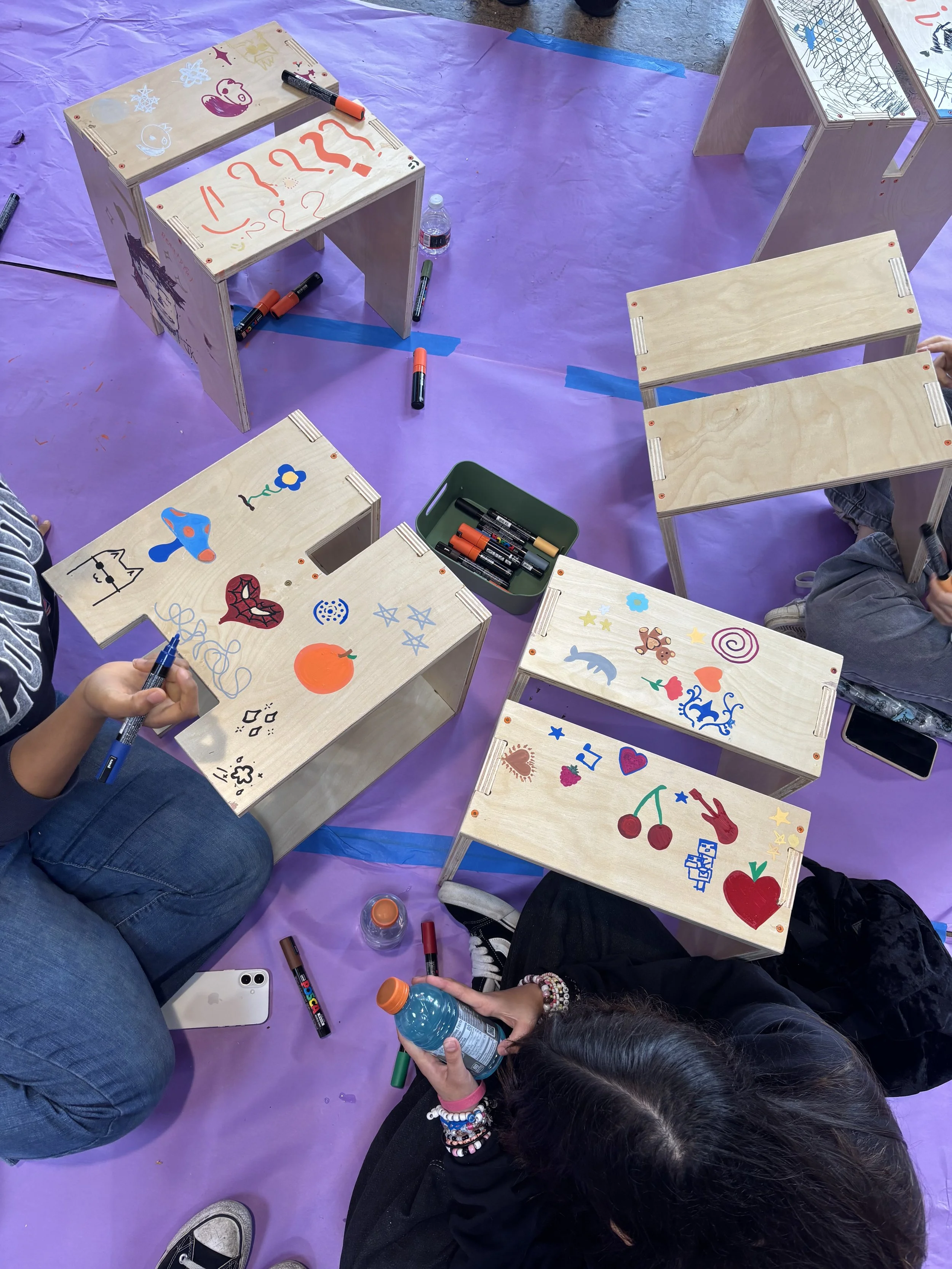Inner-City Arts
Design-Build
Partner
Inner-City Arts
Project Type
Design-Build
Location
Downtown, Los Angeles
Project Leads
Stella Gonzales, Nima Gupte
Date
2025
When 15 teen artists walked around the Inner-City Arts campus, they noticed something: the only outdoor seating option was a few picnic tables. Nowhere could a student sit alone to practice guitar, nor could parents gather around an outdoor performance.
Inspired by this need and the opportunity to add to the artwork adorning Inner-City Arts’ campus dating back to 1989, the teen artists set out to design modular seating that could be easily rearranged for different occasions and packed away when not in use.
-
This 10-week “Architecture and Design for Community impact” course was the first of its kind in ICA’s 36-year history of providing high-quality arts education to Los Angeles youth.
For the first 5 weeks, participants learned the basics of architecture an its role shaping communities with ICA teaching artist Jen Lathrop. This series culminated in the design of a model “community pavilion.” Lessons covered topics like:
Scale: from Objects, to Buildings, to Neighborhoods,
How to draw floor plans
Model-Making
Then, we focused on how architecture can impact people’s daily lives at a small scale: furniture. The young artists were given the task of creating concept designs for a small-scale improvement to the ICA campus, which eventually became the stackable stools. They did this by:
Walking the campus and observing how it was used
Sketching ideas
Exploring Materiality and Practical Fabrication Methods
Creating a prototype
Group Discussions and Voting
Based on the concept designs created by the young artists, A+A volunteers from the USC school of architecture converted them into construction drawings, refined the design for structural stability, and cut the pieces on the CNC machine. The project was brought back to the ICA campus for final assembly, and the youth artists put the finishing touches on them.
Today, the stools are stacked into new configurations almost everyday— by staff and students alike. And every time they walk by, a young artist gets to see the tangible impact they had on the world around them.
